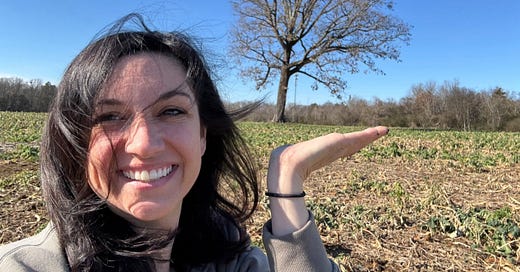One of my favorite books as a child was The Giving Tree.
I remember, even at a young age, thinking it was the perfect picture of love. That tree gave everything—its fruit, its branches, its trunk.
And even when it had nothing left to offer but a stump, even then, it sat gladly. Waiting for the boy who had taken it all to come rest his weight on what remained.
And I thought, Yes. This is it. This is love.
I admired that tree. I wanted to be that tree.
And for about thirty-nine years, I was.
I spent the first half of my life proving my worth in relationships by cutting myself to pieces. Offering time, energy, tenderness, loyalty, attention, forgiveness—whatever was needed.
People told me how rare I was, how lucky they felt to be cared for like that. I made people feel rich because I was willing to give everything—and most times, I did. Down to the stump.
It looked like joy.
It felt like love, at least to those who received it.
But there’s something most people don’t understand about givers.
Deep down, we’re desperately lonely.
Because the truth is, most givers learned how to love by noticing what was missing. We mastered the art of showing up for others in the exact ways no one ever consistently showed up for us. Giving is our soul’s love language. It’s how we say: I know what this feels like. I know how much it matters. So let me do it for you.
And then, once we’re all poured out, we retreat into a quiet, shaky gratitude. Because we believe, deep down, that we’re lucky to love at all.
I’m not gonna lie. After my divorce, I started to ask myself: What if I stopped trying? What if I pulled back my love? What if I stopped offering so much of myself, so reflexively, so eagerly—who would stay?
The answer was devastating.
Far fewer people than I expected.
But it gave me something I never had before: clarity.
I learned that some people never saw my love as a gift. They saw it as a guarantee. Something I would always offer, no matter how little was given in return.
And when I finally stopped overfunctioning—when I stopped carrying the whole of love by myself—some mistook my quiet for rejection. Some got angry, like I’d broken a contract they never had to sign. At most, they simply moved on to the next giver.
It shattered me.
But it also freed me.
Because it taught me something about myself.
I don’t want to be loved for how well I disappear into someone else’s world.
I want to be loved while I’m whole.
I want a love that doesn’t just benefit from my generosity, but meets it.
It doesn’t have to look the same. It just has to try.
And maybe that’s the truth I was never told.
The people who want to receive your love and return it in full are few.
Rare, even.
Maybe that little boy—though he was young, and I don’t blame him—just didn’t know any better.
He kept asking, and the tree kept giving, until there was nothing left.
But it turns out, that wasn’t love at all.
Because love would never pull you apart, or take you piece by piece, even if that’s what’s being offered.
Real love knows how to say: I want you whole.
Even if that means I have to grow around your fullness.
Even if I have to soften to receive it.
Even if I have to stretch to understand.
And that’s where I am, now .
(Thank God.)
Every day, I’m learning that love—the kind I’m learning to live in—isn’t measured by how much I can give…
But by how gently someone lets me keep myself.
Hey everyone,
It means the world to me that you’re here. Sharing these pieces of my heart is my way of pushing past fear, step by step.
I’ll always keep my words open and accessible because I believe encouragement and love should never come with a paywall.
But if you choose to support my work financially, know that you’re not just keeping the lights on—you’re keeping my voice alive.
Thank you for showing up alongside me on this journey.
With love and gratitude,
Mary Katherine





Oh….now I understand. In many of my relationships, I am always the giver. If I stop giving, it falls apart. Now it makes sense, it’s not me, it’s them.
I don't remember The Giving Tree from my childhood as it was published when I was 11--well past the age of reading picture books.
I do remember being given it when my first child was born. The first time I read it was not impressed.
Why was this tree giving everything away to this ungrateful snot.
I refused to read it to my children, but each one of them had a week in preschool where The Giving Tree was part of the curriculum.
So, I would ask questions with each page. "what is good about this...," "what is wrong with this...," "what should the little boy do/say, etc...," "what should the young/old man do/say, etc.,"
I wanted my children to understand that being loving does not mean giving to the point of exhaustion, or death (if you will).
Caring for others is a good thing, but we must care for ourselves and make sure we fill up our own well is equally important.
Thank you for this essay, MK!